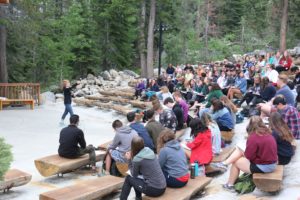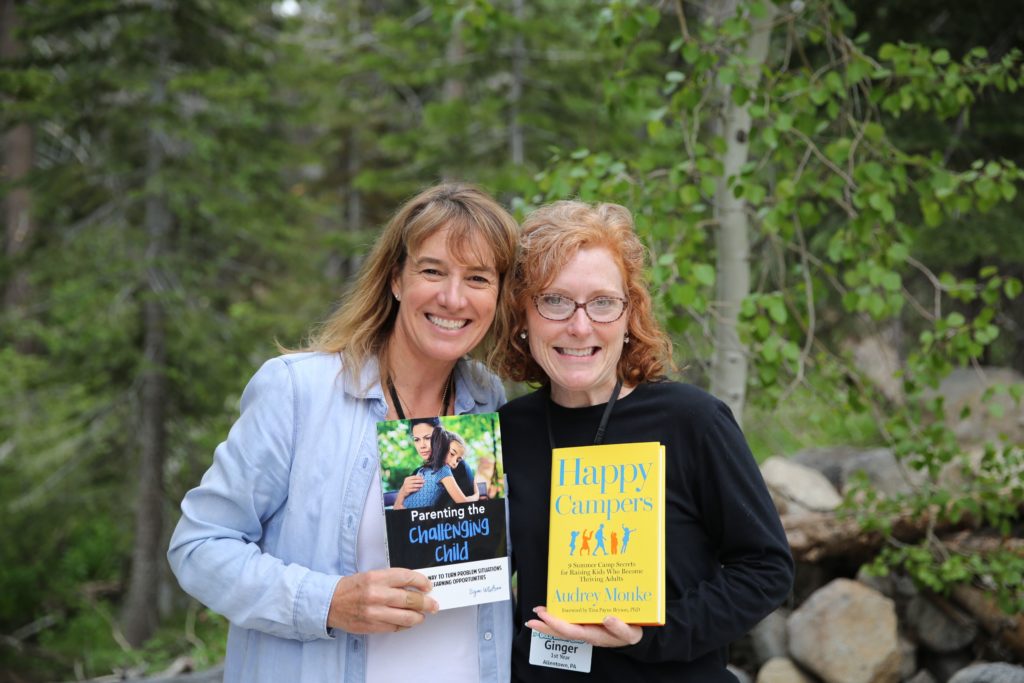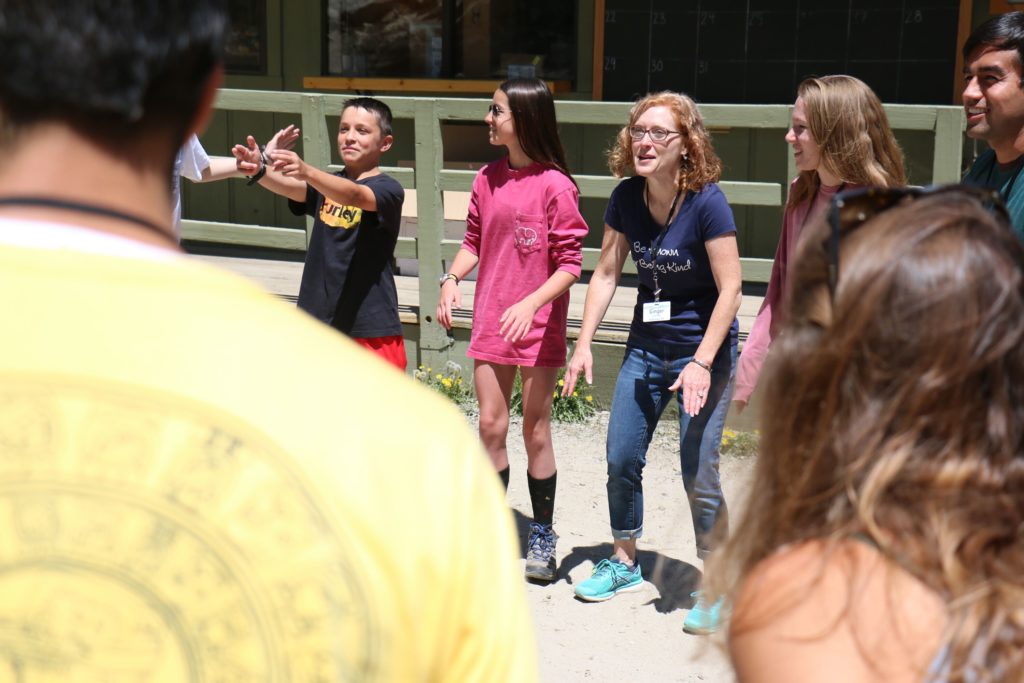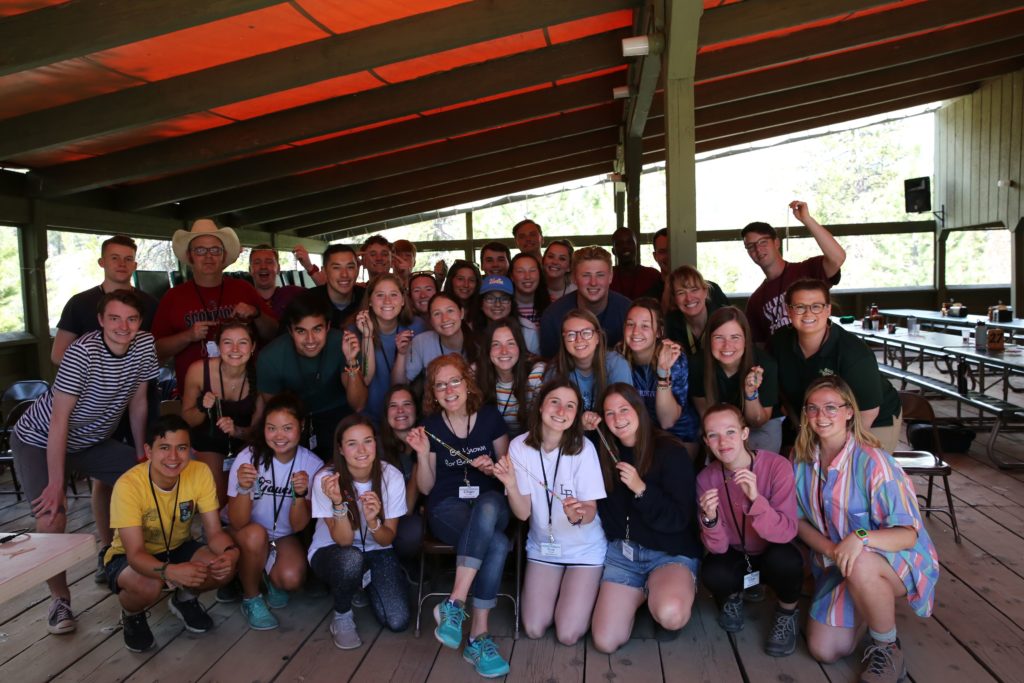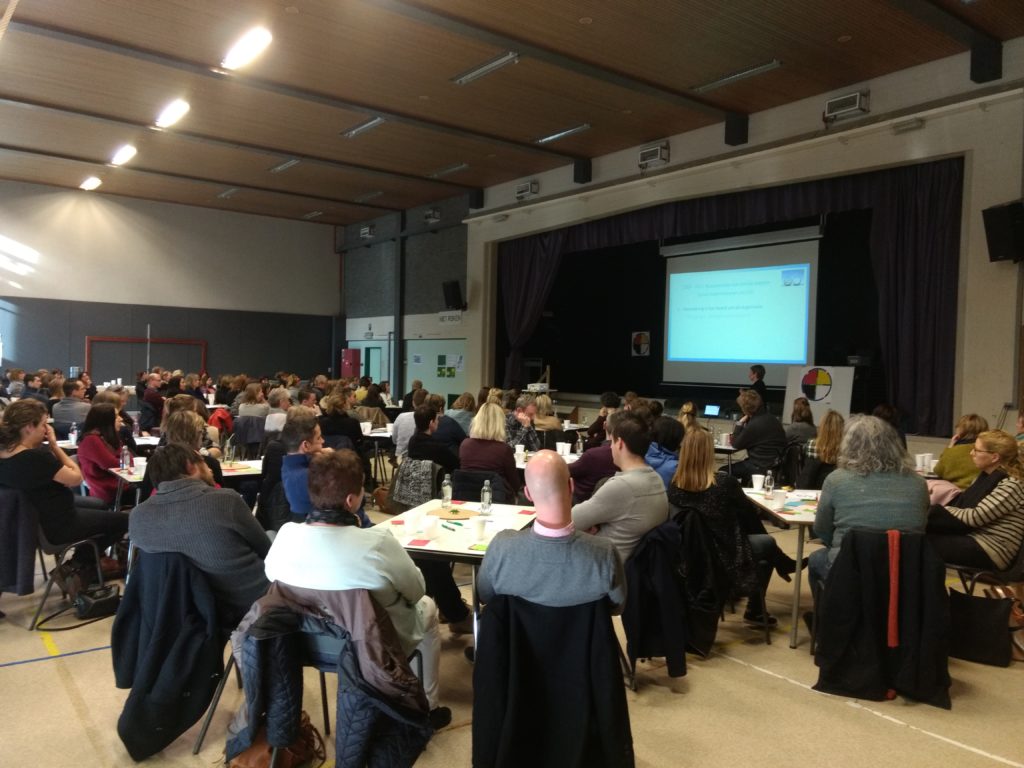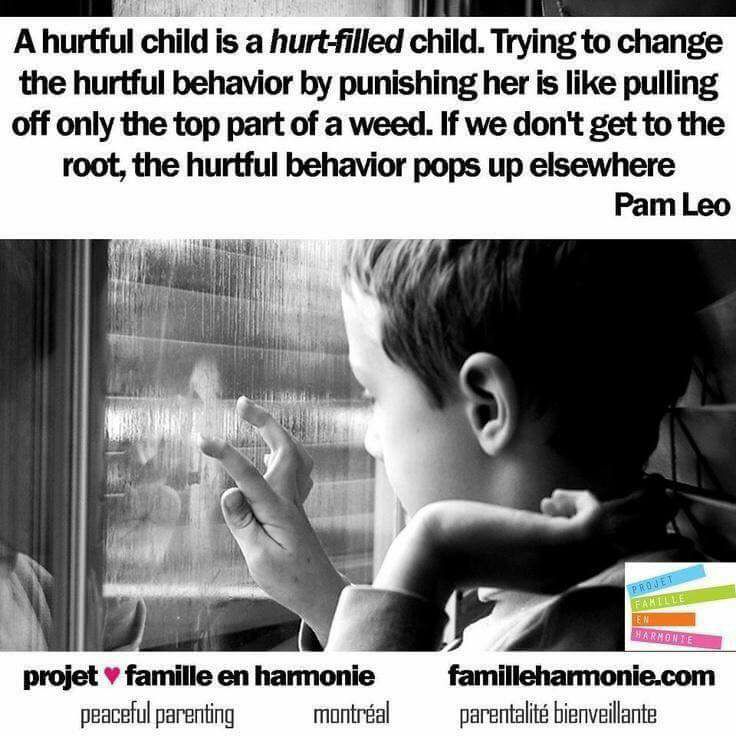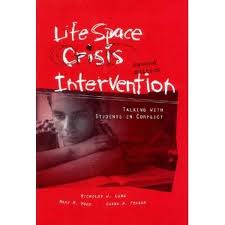Posts tagged LSCI training
Happy Campers: Bringing the LSCI Approach to Camp
0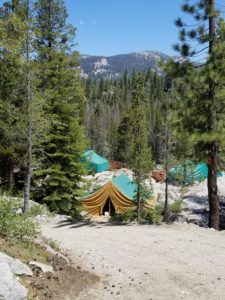 I got to go to camp this weekend!
I got to go to camp this weekend!
Since February, I have been chatting with Audrey “Sunshine” Monke, owner of Gold Arrow Camp and author of the new (and phenomenal!) book, Happy Campers: 9 Summer Camp Secrets for Raising Kids Who Become Thriving Adults, about offering training to her camp staff prior to the summer sessions. I had a feeling that being at camp would evoke nostalgia for the summers of my youth and knew from my conversations with ‘Sunshine’ that she and I are of similar minds when it comes to prioritizing social-emotional health in kiddos, but I never anticipated what a forward-thinking, child-centered, well-educated, relationship-building, warm, fun, all-around-awesome culture Gold Arrow Camp (GAC) would have. I could have stayed all summer!
Here are some photos from my three days of pure air, pure dedication to kids, and pure joy, talking with the talented and diverse Gold Arrow Camp staff about anxiety in young people, understanding the differences between rude, mean and bullying behavior at camp, and how to use LSCI skills to relate, regulate, and respond effectively to challenging camper behavior.
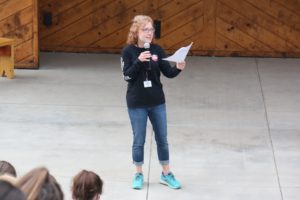
Teaching GAC staff to look beyond surface behavior to understand the thoughts and feelings that drive challenging camper behaviors
KidsPeace Certifies 7 New Associates inn LSCI
0Congratulations to these 7 newly certified LSCI practitioners from KidsPeace National Centers in Pennsylvania!
To inquire about attending LSCI training at KidsPeace, click here.
To bring an LSCI Trainer to your school or organization, email signewhitson@lsci.org
Follow these links to learn about other LSCI training opportunities, including LSCI Skills for Parents & Caregivers or LSCI online training.
Earn LSCI Certification this Summer!
0LSCI Certification Training Event: Aug 5-8, 2019
It may be just barely Spring, but I am looking ahead to summer and happy to announce an LSCI training opportunity in August in eastern Pennsylvania:
——
LSCI Certification Training
DATES: August 5-8, 2019
LOCATION: The Swain School, 1100 S. 24th St., Allentown, PA 18103
COSTS: $495/pp before July 15, 2019; $525/pp between July 16-31, 2019
REGISTRATION CLOSES on AUGUST 1, 2019
——
To register, click here or cut and paste the link below:
ONLINE REGISTRATION FORM: https://goo.gl/forms/AUkyJdUTJqG2pFrm2
LSCI Training: The Most Valuable Training of My Career
019 years ago, I was lucky enough to be selected to attend this 5-day certification training…and the rest has been history. I can truly tell you that I use LSCI skills every single day in my work with students and as a Mama. I could never say enough about how rich and valuable this training is, how practical and relevant the skills are to everyday situations, and how profoundly it has guided my thoughts and my actions with young people.
Learn more at www.lsci.org
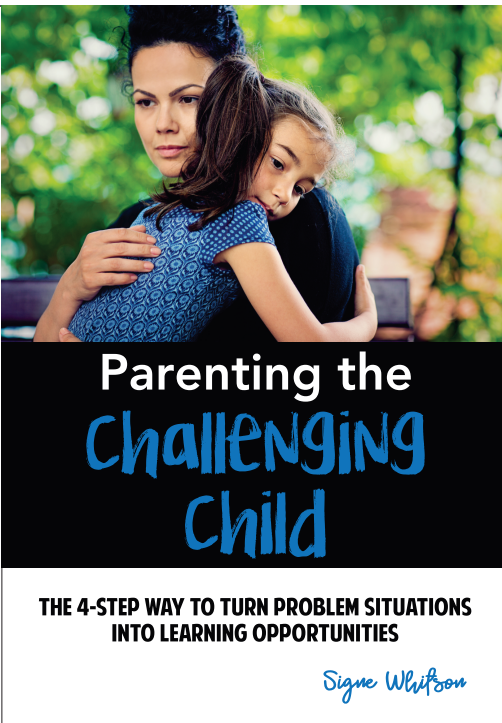
New Training & Book: Parenting the Challenging Child
0The LSCI Institute offers training to meet the unique needs and challenges of parents and caregivers. Based on Signe’s brand new book, Parenting the Challenging Child: The 4-Step Way to Turn Problem Situations Into Learning Opportunities, the training:
- Provides specific skills for building more positive relationships with kids
- Teaches proven strategies for de-escalating stressful situations
- Provides a reliable 4-step framework for turning common problem situations into lasting learning opportunities
 2-hour Training for Parents & Caregivers
2-hour Training for Parents & Caregivers
 This course presents fundamental LSCI concepts such as the Conflict cycle™, effective listening, conflict de-escalation, and “Timeline” skills through engaging activities and discussions that are relevant and accessible to parents and caregivers.
This course presents fundamental LSCI concepts such as the Conflict cycle™, effective listening, conflict de-escalation, and “Timeline” skills through engaging activities and discussions that are relevant and accessible to parents and caregivers.
Full-day Training Parents & Caregivers
This course includes all of the content from the 2-hour course and, in addition, identifies the six most common patterns of challenging behavior in kids. The full-day training provides parents with a consistent 4-step process to address and modify each pattern, giving attendees the opportunity to practice the 4-steps and receive feedback on their new skills.
Both 2-hour and full-day training participants receive a copy of the Parenting the Challenging Child text along with a comprehensive course manual.
————-
For more information or to find a Trainer in your area, please visit: https://www.lsci.org/parents/course-information/
————-
LSCI Training Uses Problems Situations as Opportunities to Connect
0In the year 2000, as a young clinical social worker just two years out of graduate school and trying to find ways to effectively connect with tweens and teens in a residential treatment center, I lucked into attending an LSCI Certification training. To say that the advanced skills of LSCI changed my life would be an understatement. 18 years later, I can honestly say that I use LSCI skills every. single. day. in my work as the Director of Counseling at an Independent School, as a Mama of two daughters, and as a colleague.
It is the most practical set of skills I have ever learned, but more importantly, it is a way of thinking about young  people. LSCI taught me to always LOOK BEYOND BEHAVIOR and to focus my attention on discovering the beliefs, thoughts, and feelings that underlie a young person’s challenging behaviors.
people. LSCI taught me to always LOOK BEYOND BEHAVIOR and to focus my attention on discovering the beliefs, thoughts, and feelings that underlie a young person’s challenging behaviors.
LSCI keeps foremost in my mind that every person has a story and that my most valuable role can be in connecting with that young person so that I can help them put that emotional story into words–rather than expressing themselves through self-destructive behaviors.
That’s LSCI in a nutshell–though the 4-day certification course offers so, so much more in terms of practical, step-by-step skills to reach and teach young people with patterns of self-defeating behaviors. I’m always happy to tell you more about what LSCI offers. Please feel free to email me at signewhitson@lsci.org or check out LSCI’s website at www.lsci.org
In the meantime, today I’m thrilled to say that LSCI is thriving not just in the U.S., but throughout Canada, Europe, and beyond! Check out these images of LSCI training in Flanders, Belgium last week:
Hurt Students Hurt Students
0I saw this meme online today and just love it:
LSCI training, the certification program that is the basis for most of my professional interactions with distressed kids, offers the skills we all need to reach out to hurt-filled children. For more information please visit the LSCI page on this site or check out www.lsci.org today. I can very honestly say that I use the skills of LSCI every single day in my work and have for the last 17 years since I was first certified in LSCI. I’m happy to answer any and all questions about LSCI training.
Training opportunities are available online at your convenience or year round at any of LSCI’s international training sites.
LSCI with Hurt Children: A Red Flag Intervention Example
0Ever wonder what LSCI really sounds like, when put into action with children and youth? Here’s your chance to “listen in” on a Red Flag intervention, conducted in Belgium by one of our Master Trainers, Gerrit deMoor.
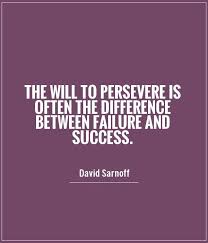 Life Space Crisis Intervention with Hurt Children:
Life Space Crisis Intervention with Hurt Children:
A Red Flag Reclaiming Intervention
By: Gerrit deMoor, LSCI Master Trainer
Master Facilitator of the International Virtues Project
MFC Sint-Gregorius, Belgium
Introduction & Background
Kenny is an 11 year old boy. He has been in our residential care center for six years and I have been working with him, mostly on an individual basis, for about 3 years.
Kenny grew up as the oldest of six children and has been a witness and a victim of domestic violence. He was abused by his father and later, when his father was no longer allowed to have contact with his wife and children, Kenny was the victim of violence by his mother’s new partner. Being the oldest of the children, it seems Kenny is the scapegoat of the family. All the children are severely punished when things are not working out as mama’s partner expected, but Kenny usually suffers the most.
Once, when he was in crisis and overwhelmed by emotions, he told us that he is forbidden to talk about the situation at home, otherwise he would be punished even more. He never talked about it afterwards.
Kenny is verbally not very strong and mostly bottles up his feelings until he explodes. On these occasions, he often must be physically restrained due to his dangerous level of aggression. Even then, he only calms down due to fatigue. When an adult tries to use LSCI after a crisis situation, Kenny has typically gotten himself back under control and lets no one come close to his inner world. This story is about an LSCI I recently did with Kenny. It was the first time ever that he reflected upon a crisis and that he really could formulate insight into his behavior.
Stage 1: Drain Off
I was called by a colleague to restrain Kenny because he was physically aggressive and he was a danger for other children and for the adults. Two colleagues and I brought him to the quiet room. I stood in the doorway in order to show some nearness towards him and to try to get connected with him. He seemed to calm down and I asked him if he had enough self-control to go to his room with me. He agreed. When we were in his room, I asked him if he was all right. He affirmed. I told him I was glad that he settled down quiet quickly. I saw he relaxed physically.
Stage 2: Timeline
I got back to his anger and asked what happened that made him that angry.
Normally he blocks such questions, but now – to my surprise – he started talking: He told me that he and John had a quarrel over a football. It was not clear who was the owner of the ball they were playing with. Kenny told John that it was his property, while John was convinced that the ball belonged to the group. While telling this, Kenny tells me that he had found the ball a couple of weeks ago and that he went by all of the groups to ask whose ball it was. It belonged to no one, so Kenny considered the ball to be his.
But as he is talking to me, it turned out that the fight with John started earlier: the children were playing soccer and at a certain moment John had taken the ball and told the other children to run away from Kenny. Kenny ignored the teasing, but he told John to ‘give my ball back’. And then John said the ball belonged to the group and was not Kenny’s. That was the start of the quarrel about the ball.
The educator had heard the discussion, but as she was a temporary staff member, replacing someone who was ill for a couple of weeks, she didn’t know the real owner of the ball. So she told the children that she would put the ball aside in order to find out the real truth about it when other staff members would show up. As a result, Kenny got angry at my colleague and pushed her away in order to get his assumed ball. For safety reasons, we have a procedure that children that are physically aggressive are brought to the quiet room. So that is what happened to Kenny.
I asked Kenny what my colleague tried to obtain by putting the ball aside. “Was she trying to hassle you like John did?” He kept silent for a few seconds. I could see he was thinking and wondering if he could take the risk of being honest with me. “No” he said.
“What was her goal?” I asked.
Silence again.
“She was trying to stop the fight between me and John?” was his rhetorical question.
I acknowledged his courage to think things over and share his thoughts with me.
Stage 3: Central Issue
Then, I summarized his story: “So Kenny, you were playing football with some other children. At a certain moment John takes the ball and orders the other children to run away from you. To me, this looks like teasing. But you ignored the teasing. That is really thoughtful and strong. But you want your ball back and you say that to John. When John says it is not your ball, you both end up in a huge discussion. Right?”
He affirms.
“Now, Ms. Kathy hears about your fight. She’s not sure about the ball. She wants no fight between the two of you and she decides to put the ball aside and ask her colleagues. But then you start a fight with Ms. Kathy.”
I summarize with a neutral voice; like I am reading the news bulletin.
He is clearly embarrassed with this summary.
Stage 4: Insight
There is again a moment of silence and suddenly he says: “This happens often to me.” I asked for more details about this statement. “Well, it often happens that I am angry at someone. But when I get angry, I get angry at everybody who is in my neighborhood.”
Now, that sure is a hell of an insight when we are dealing with a Red Flag Reclaiming Intervention. I am surprised and happy with so much insight.
To be sure, I asked him: “So you were in fact angry at John, but you acted your anger out at Ms. Kathy. But you are not really angry with Ms. Kathy. Do I understand this well?”
He nods.
Stage 5: New Skills
Immediately, Kenny wants to apologize to Ms. Kathy. But as it turns out that he doesn’t know very well how to do that, so we practice how to make a sincere apology together. The plan is to tell Ms. Kathy the insight phrase he just told me.
And then, I invite him to look at the future. “If this often happens to you, how can we prevent this from happening?”
We think together and we come to the conclusion that when he senses that he is getting angry: pounding heart, fast breathing, etc, he asks to go to the quiet room by himself, with no restraining by the adults.
Stage 6: Transfer of Skills
With all of this insight and future plans, we go to Ms. Kathy. I made the introduction and he had a good talk with my colleague.
Hopefully, this is the start of a profound behavioral change for Kenny together with a stronger connectedness between him and adults he can trust.
About the Author:
Gerrit De Moor is a Master Trainer for the LSCI Institute, working in Belgium. Gerrit graduated as an industrial  engineer in 1987 and started working in this field. He says he never felt at home in the industrial world, however, believing their view on man and the world made it hard for him to fit in.
engineer in 1987 and started working in this field. He says he never felt at home in the industrial world, however, believing their view on man and the world made it hard for him to fit in.
In 1990, Gerrit started a course on orthopedagogics and four years later earned his degree in this field. By ‘coincidence,’ he started working with children and youth with EBD. Gerrit soon became a specialist in developing individualized programs for prosocial skills.
In 2001, after 9/11, Gerrit says he was searching for a more positive framework to utilize with these children. He studied and implemented the paradigm of non-violence by a Belgian anthropologist: Pat Patfoort (http://www.patpatfoort.be/ENG-Pat.htm). One year later, his team was invited by Dr. Franky d’Oosterlnck to take part in the first European LSCI-training in Europe. The LSCI method turned out to match perfectly in the paradigm of non-violence.
Gerrit was invited by Dr. Franky D’Oosterlinck to assist at his trainings and in 2007, Gerrit traveled from Belgium to Columbus, OH to become certified as a Senior LSCI Trainer.
Since then, Gerrit has successfully conducted many LSCI Certification trainings and is actively involved in the EFeCT group (www.efect.be). In 2013, he was honored by the LSCI institute as a Master Trainer.
Gerrit is also a Master Facilitator of the Virtues Project. (www.virtuesproject.com) and author of a book on the issue of punishment. He is currently working on a translation in English of the Dutch book. For more information on Gerrit, please visit: https://be.linkedin.com/pub/gerrit-de-moor/50/920/154
Contact information:
Gerrit De Moor
e-mail: gerrit.de.moor@outlook.com
For more real-life examples of LSCI interventions, please visit https://www.lsci.org/learn-more/real-examples-of-lsci-interventions-with-kids/
LSCI Training offers trauma-informed intervention for students
0“At Lincoln, the teachers and staff follow a few deceptively simple rules: Don’t take anything the student says personally and don’t mirror their behavior with an outburst of your own. The teachers give students time to calm down, often in the principal’s office or a special “quiet room.” Later, they inquire about what might be bothering them and ask if they want to talk about it.
Such seemingly straightforward techniques are actually based on hard science. In contrast to the fight-or-flight response triggered by perceived threats, seemingly minor acts of kindness, such as a few caring words from a teacher or a quick hug, can activate a cascade of Oxytocin, sometimes called the “love hormone.” In highly traumatized kids, such simple acts can have an outsized impact.
Kelsey says she was “shocked” when, after precipitating a violent fight with another girl during her freshman year, she wasn’t immediately arrested and kicked out of school. Instead, she went to the principal’s office to cool off. “I was given a bottle of water, a gentle pat on the back and time to reflect on my behavior,” recalled Kelsey. “Even the school cop talked to me calmly and helped me discuss what I had done.”
There were consequences: Kelsey was suspended for three days and charged with assault. But she never got into a fight again. “I saw that there were people in the building who cared about me and realized I could have gone to any of them to resolve the issue without a fight,” she said.”
Read on for more of this incredible article from The Atlantic. THIS is what LSCI practitioners have been doing for decades–allowing kids to Drain Off their intense emotions first, THEN using specific strategies to help them talk about their problems and learn new behaviors. THIS is the work that drives me and the reason I am so proud to be affiliated with the LSCI Institute!
To learn more, email me or visit www.lsci.org today to get certified in the skills of LSCI before the new school year begins!
http://www.theatlantic.com/education/archive/2016/07/teaching-traumatized-kids/490214/
